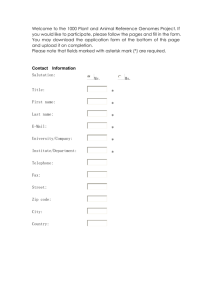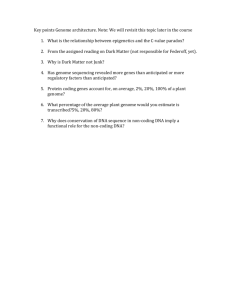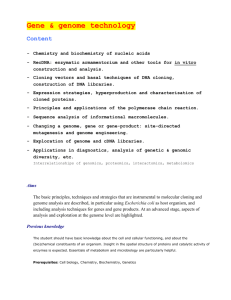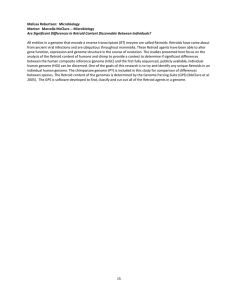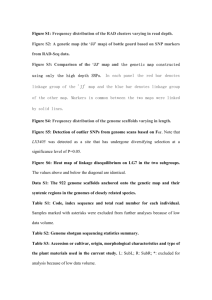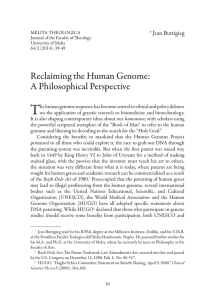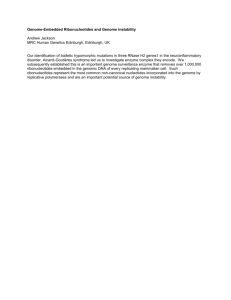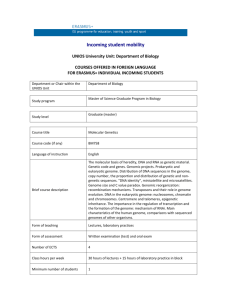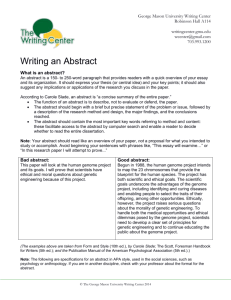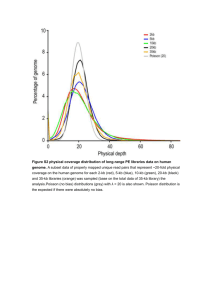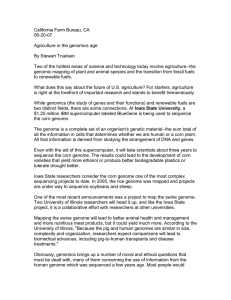Genome WebQuest
advertisement
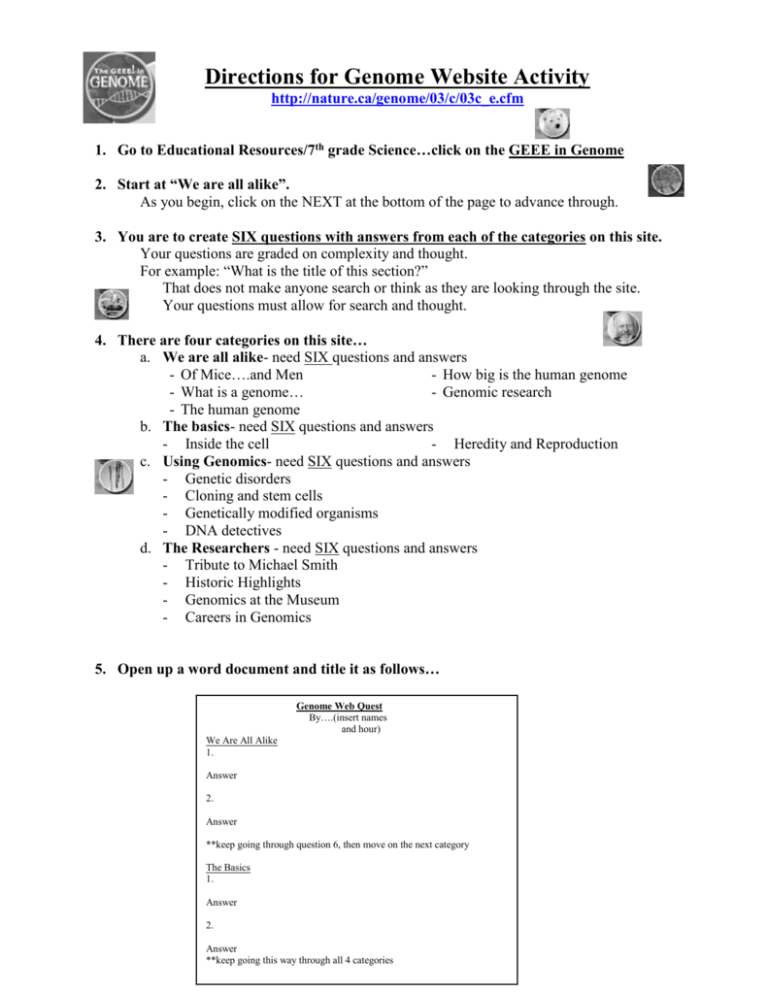
Directions for Genome Website Activity http://nature.ca/genome/03/c/03c_e.cfm 1. Go to Educational Resources/7th grade Science…click on the GEEE in Genome 2. Start at “We are all alike”. As you begin, click on the NEXT at the bottom of the page to advance through. 3. You are to create SIX questions with answers from each of the categories on this site. Your questions are graded on complexity and thought. For example: “What is the title of this section?” That does not make anyone search or think as they are looking through the site. Your questions must allow for search and thought. 4. There are four categories on this site… a. We are all alike- need SIX questions and answers - Of Mice….and Men - How big is the human genome - What is a genome… - Genomic research - The human genome b. The basics- need SIX questions and answers - Inside the cell - Heredity and Reproduction c. Using Genomics- need SIX questions and answers - Genetic disorders - Cloning and stem cells - Genetically modified organisms - DNA detectives d. The Researchers - need SIX questions and answers - Tribute to Michael Smith - Historic Highlights - Genomics at the Museum - Careers in Genomics 5. Open up a word document and title it as follows… Genome Web Quest By….(insert names and hour) We Are All Alike 1. Answer 2. Answer **keep going through question 6, then move on the next category The Basics 1. Answer 2. Answer **keep going this way through all 4 categories To help you develop complex questions, use Bloom’s Taxonomy of Thinking. Level 1: Knowledge - exhibits previously learned material by recalling facts, terms, basic concepts and answers. Key words: who, what, when, omit, where, which, choose, find, how, define, label, show, spell, list, match, name, relate, tell, recall, select What is . . . ? How is . . . ? When did _______ happen? Where is . . . ? Which one . . . ? Who was . . . ? Level 2: Comprehension - demonstrating understanding of facts and ideas by organizing, comparing, translating, interpreting, giving descriptions and stating main ideas. Key words: compare, contrast, demonstrate, interpret, explain, extend, illustrate, infer, outline, relate, rephrase, translate, summarize, show, classify How would you classify the type of . . . ? Which statements support . . . ? How would you compare . . . ? contrast . . . ? What is the main idea of . . . ? What facts or ideas show . . . ? Level 3: Application - solving problems by applying acquired knowledge, facts, techniques and rules in a different way. Key words: apply, build, choose, construct, develop, interview, make use of, organize, experiment with, plan, select, solve, utilize, model, identify What examples can you find to . . . ? How would you show your understanding How would you organize _______ to of . . . ? show . . . ? What would result if . . . ? Level 4: Analysis - examining and breaking information into parts by identifying motives or causes; making inferences and finding evidence to support generalizations. Key words: analyze, categorize, compare, contrast, discover, dissect, divide, examine, inspect, simplify, survey, take part in, test for, distinguish, list, distinction, theme, relationships, function, motive, inference, assumption, conclusion. What are the key parts or features of . . . ? Why do you think . . . ? What is the theme How is _______ related to . . . ? ...? What conclusions can you draw . . .? Level 5: Synthesis - compiling information together in a different way by combining elements in a new pattern or proposing alternative solutions. Key Words: build, choose, combine, compile, compose, construct, create, design, develop, estimate, formulate, imagine, invent, make up, originate, plan, predict, propose, solve, solution, suppose, discuss, modify, change, original, improve, adapt, minimize, maximize, delete, theorize, elaborate, test, improve What could be combined to improve Can you predict the outcome if . . . ? (change) . . . ? Can a model be constructed that would What theory can be formulated for . . . ? change . . . ? Level 6: Evaluation - presenting and defending opinions by making judgments about information, validity of ideas or quality of work based on a set of criteria. Key Words: choose, conclude, criticize, decide, defend, , dispute, evaluate, judge, , measure, compare, mark, rate, recommend, rule on, select, agree, interpret, explain, appraise, prioritize, opinion, ,support How would you rate . . . ? What is your What data was used to make the opinion of . . . ? conclusion . . . ? How would you prove . . . ? disprove . . . ? What is the value or importance of . . . ? Would it be better if . . . ?
